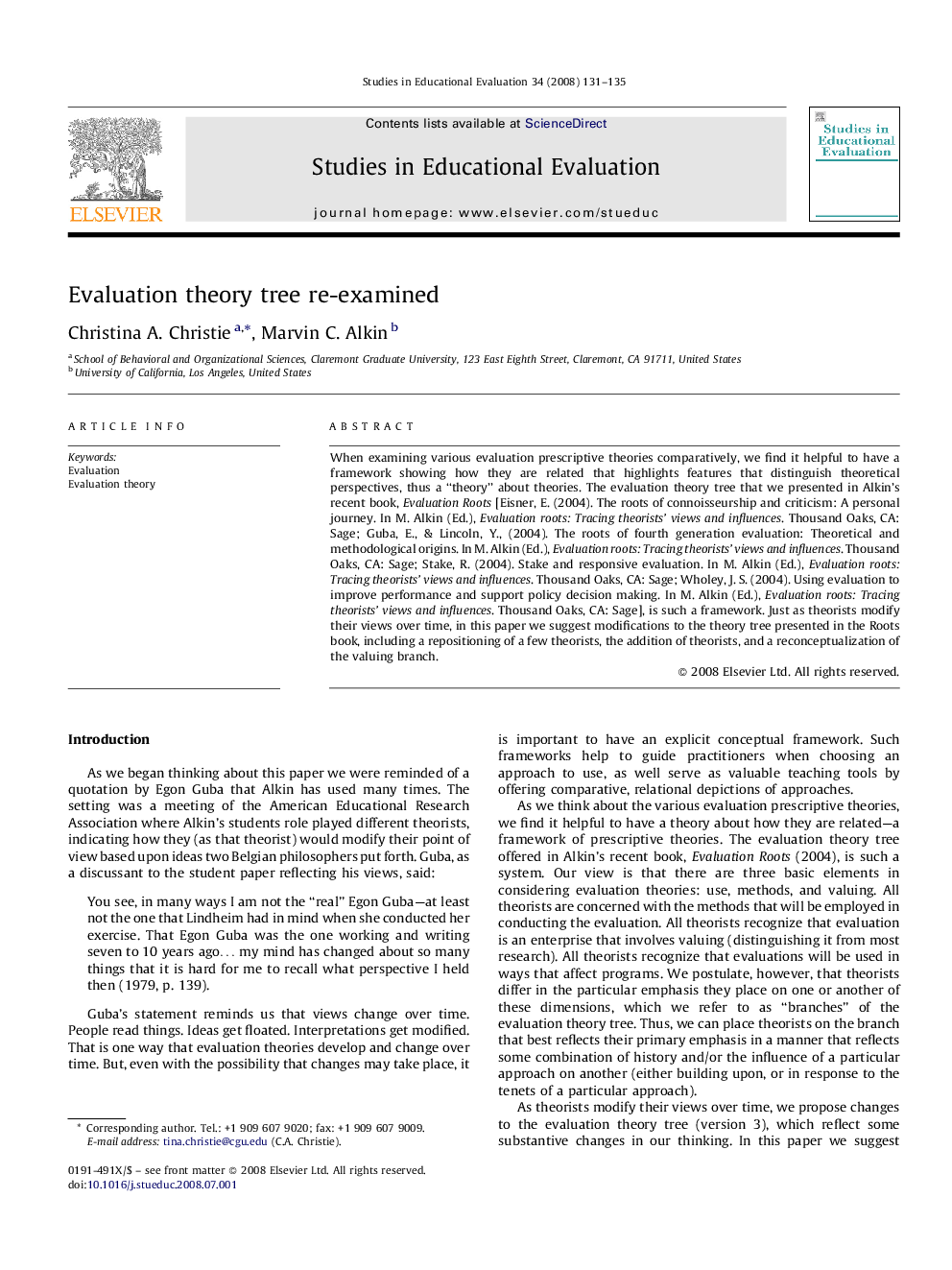| Article ID | Journal | Published Year | Pages | File Type |
|---|---|---|---|---|
| 372788 | Studies in Educational Evaluation | 2008 | 5 Pages |
When examining various evaluation prescriptive theories comparatively, we find it helpful to have a framework showing how they are related that highlights features that distinguish theoretical perspectives, thus a “theory” about theories. The evaluation theory tree that we presented in Alkin's recent book, Evaluation Roots [Eisner, E. (2004). The roots of connoisseurship and criticism: A personal journey. In M. Alkin (Ed.), Evaluation roots: Tracing theorists’ views and influences. Thousand Oaks, CA: Sage; Guba, E., & Lincoln, Y., (2004). The roots of fourth generation evaluation: Theoretical and methodological origins. In M. Alkin (Ed.), Evaluation roots: Tracing theorists’ views and influences. Thousand Oaks, CA: Sage; Stake, R. (2004). Stake and responsive evaluation. In M. Alkin (Ed.), Evaluation roots: Tracing theorists’ views and influences. Thousand Oaks, CA: Sage; Wholey, J. S. (2004). Using evaluation to improve performance and support policy decision making. In M. Alkin (Ed.), Evaluation roots: Tracing theorists’ views and influences. Thousand Oaks, CA: Sage], is such a framework. Just as theorists modify their views over time, in this paper we suggest modifications to the theory tree presented in the Roots book, including a repositioning of a few theorists, the addition of theorists, and a reconceptualization of the valuing branch.
